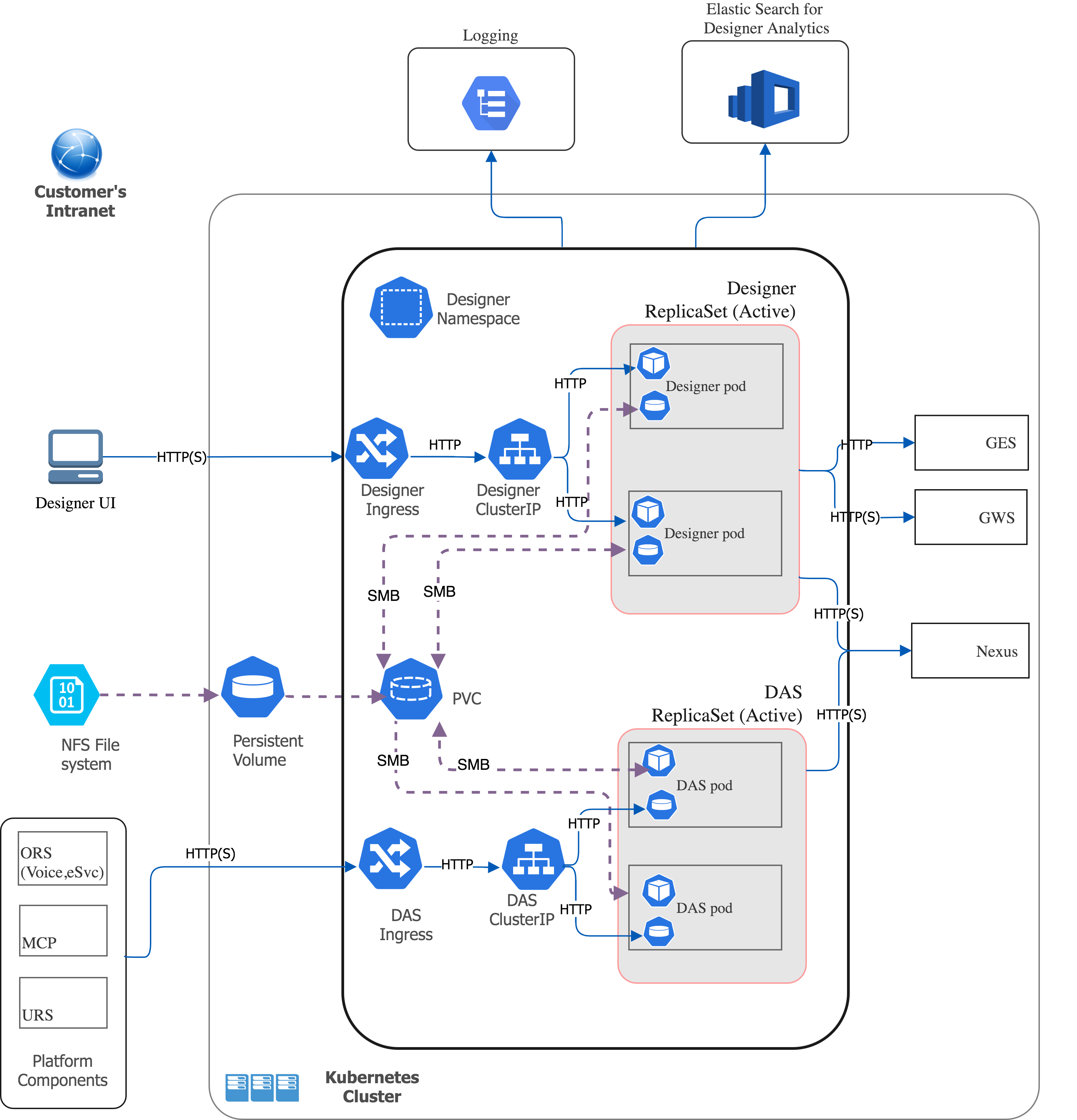Difference between revisions of "DES/Current/DESPEGuide/Architecture"
(Published) |
m (Text replacement - "Genesys Engage [cC]loud" to "Genesys Multicloud CX") |
||
| Line 4: | Line 4: | ||
|IntroductionText=The architecture diagram in this topic illustrates a sample deployment of Designer and DAS. | |IntroductionText=The architecture diagram in this topic illustrates a sample deployment of Designer and DAS. | ||
| − | For more information on the Genesys | + | For more information on the Genesys Multicloud CX private edition architecture, refer to the {{SuiteLevelLink|architecture}} topic in the ''Setting up Genesys Multicloud CX private edition'' document. |
|Image=Premise-Designer-DAS-architecture.png | |Image=Premise-Designer-DAS-architecture.png | ||
|Section={{Section | |Section={{Section | ||
Revision as of 20:28, November 9, 2021
Learn about Designer's architecture.
The architecture diagram in this topic illustrates a sample deployment of Designer and DAS.
For more information on the Genesys Multicloud CX private edition architecture, refer to the Architecture topic in the Setting up Genesys Multicloud CX private edition document.
High Availability (HA), Disaster Recovery (DR), and Scalability
Designer and DAS must be deployed as highly available in order to avoid single points of failure. A minimum of 2 replicas of each service must be deployed to achieve HA.
The Designer and DAS service pods can be automatically scaled up or down based on metrics such as CPU and memory utilization. The Deployment configuration settings section provides more information on configuring HA and auto-scaling.
Refer to the Genesys Docker Deployment Guide for more information on general HA recommendation for Kubernetes.

